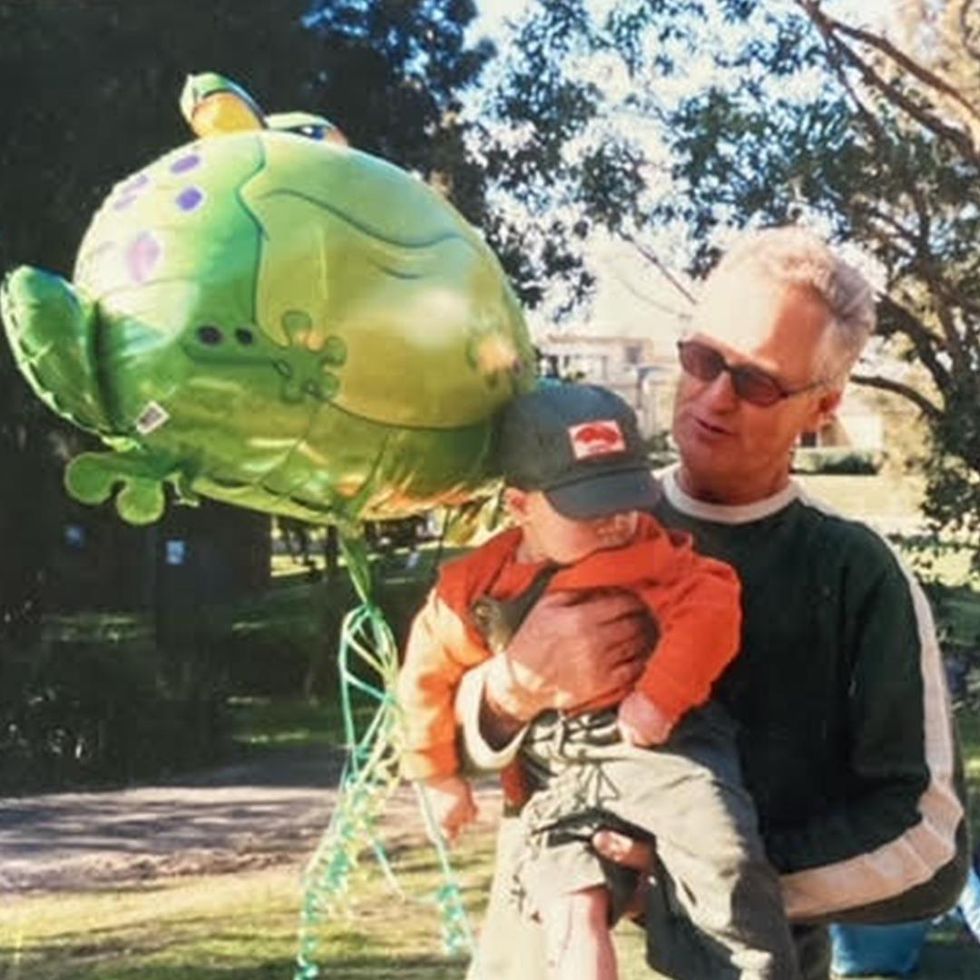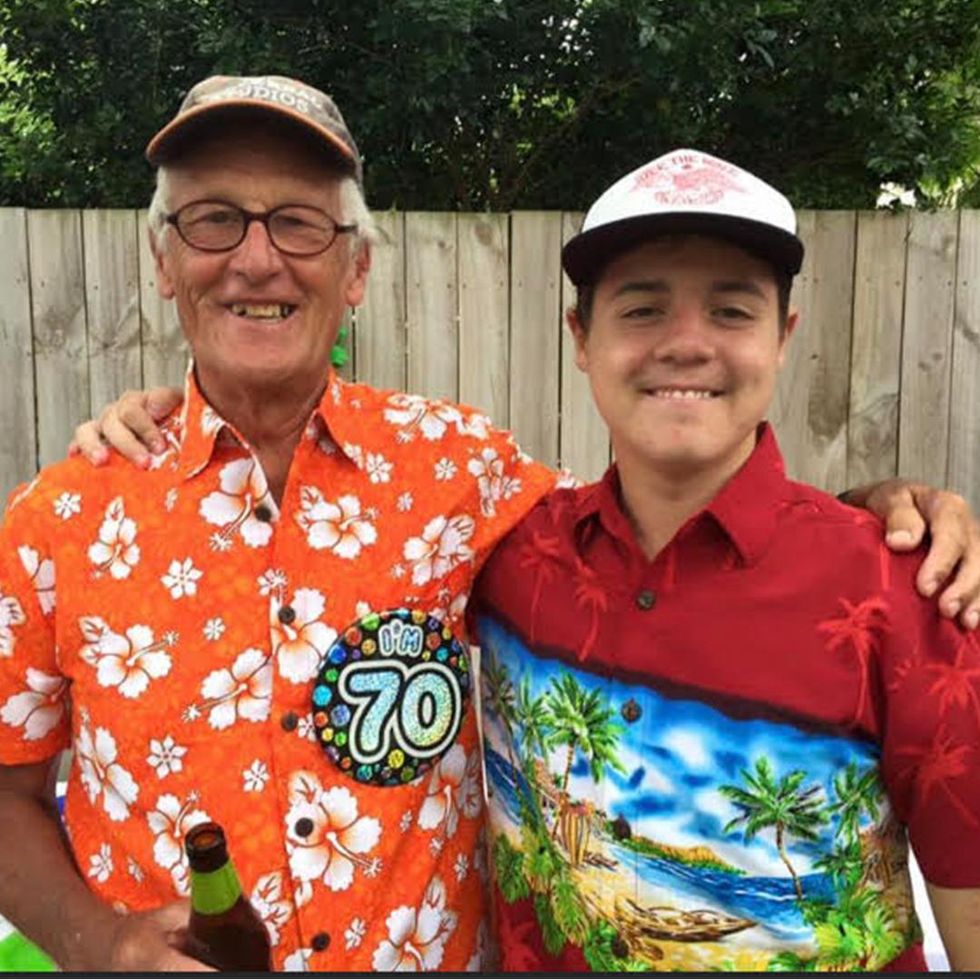COMMENT
- Highly Commended in the 2022 Ossie Awards for student journalism in the Best text-based story by an undergraduate or postgraduate student – 750 words or less.
Dementia is an insidious thief: over the course of a few years, it has robbed me of the jovial, energetic man that was my grandfather. He became a stranger in a familiar body.
My grandfather, Robert Weir, who I call Pop, is 76. I can’t recall the last time he was able to laugh or smile, and I miss his constant jokes and quips. In 2018, when his condition had worsened, he spoke to me in a rare moment of lucidity: “My head is always pounding, I can’t think straight, and there’s this fog that never goes away.”
These words have stuck with me. Today, Pop lives at a nursing home in Malabar, in Sydney's east. He doesn’t remember me, he can barely speak and he cannot walk or eat without assistance.
I’m not alone in this horrible experience: according to Dementia Australia, there are an estimated 487,500 Australians living with dementia and an additional 1.6 million people involved in their care. These statistics don’t include the loved ones of patients whose lives have changed forever. While there is no cure, an amendment to voluntary assisted dying legislation could offer hope to those trapped in dementia’s silent suffering.
'I can’t imagine a world without my Pop in it but this isn’t about me.'
On May 19, New South Wales became the final state to legalise voluntary assisted dying. This allowed people with sufficient decision-making capacity to choose euthanasia, if their terminal illness would cause death within six months, 12 months for those with neurodegenerative conditions.
Alex Greenwich, the independent MP who introduced the bill, said compassion had "won" and I celebrate this victory alongside him. Yet, I’m disappointed with how those suffering with dementia have been neglected in ensuring the bill passed without further debate.
There are numerous flaws in the new legislation. Firstly, the bill establishes an eligible death period of six to 12 months. Dementia has no quantifiable death period: there is instead a deterioration of cognitive and physical abilities over the course of years or decades, eventually resulting in death.
Secondly, the bill requires the patient to have decision-making capacity. Patients with severe dementia, who suffer the most, have lost their sense of reality, and are often unable to even talk.
Thirdly, eligibility for assisted dying is determined by the level of suffering experienced by the patient. With dementia, pain is not physically manifested, it is a mental suffering, where the patient is trapped in their own mind.
Considering these flaws, I propose the legislation could be amended to make it more accessible to dementia patients. The bill should allow for individuals, prior to a dementia diagnosis, to make a preliminary decision for assisted dying in case of a future diagnosis. Should the diagnosis occur, they will have made the enduring choice to receive assisted dying once the condition progresses to severe stages.
If the individual is in dementia’s early stages, where decision-making is barely affected, they should be able to choose assisted dying. Again, this would be implemented in the later stages of dementia, where the suffering is immense.
In 2020, The Netherlands became the first nation to allow euthanasia for individuals with advanced dementia, requiring prior written permission for those experiencing "hopeless and unbearable suffering". A 2021 study in the National Library of Medicine found prior to the law, 40 per cent of Dutch doctors had received euthanasia requests from people with dementia at least once in their career. It is not known how many have chosen euthanasia since the law passed.
In Australia, the only organisation supporting dementia assisted dying is Dementia Australia. In 2020, they presented a report to the Queensland Law Reform Commission calling for the State’s assisted dying bill to include dementia amendments.
When NSW Premier, Dominic Perrottet, a committed Catholic, opened the parliamentary debate on assisted dying last November, he spoke of the value of humanity: “This debate is fundamentally about how we treat that precious thing called human life."
He's right, human life is precious but it should not be preserved when that preservation inflicts unspeakable torment, day after day, on those who cannot even express their pain. It would be cruel to force those suffering from severe dementia to endure their pain for the sake of our own comfort. Losing someone is hard but watching them slowly perish before our eyes is even harder.
I can’t imagine a world without my Pop in it but this isn’t about me: it’s about treating those suffering from dementia with the compassion and choice they deserve. An amendment to assisted dying legislation might achieve this.





Cultural ping pong: Dancing on the edge of two worlds